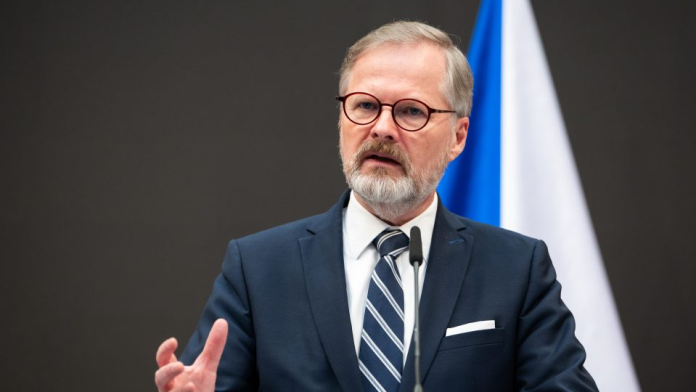Czech Prime Minister Petr Fiala called for a significant shift in the European Union’s budget priorities, advocating for the redirection of existing funds towards security and defence rather than non-essential projects, according to Euractiv.
Speaking at a press conference on Friday, Fiala emphasised the urgent need for increased defence investment in light of the evolving security landscape in Europe.
Fiala highlighted the EU’s ability to mobilise substantial resources during crises such as the COVID-19 pandemic and climate change, arguing that similar efforts should now be directed towards bolstering defence capabilities.
We need to increase national budgets, but we also have to discuss common European money. If Europe managed to create funds to tackle COVID or achieve climate goals, it must be able to create sufficient financial reserves for security and defence.
The Czech leader clarified that the shift did not necessarily require an increase in the overall EU budget or additional borrowing. Instead, he suggested reallocating existing funds by prioritising defence and security over less critical projects.
It could mean flexibility and loosening rules for existing funds. Perhaps we do not need to build yet another lookout tower or similar projects that European money is sometimes used for. Maybe even that additional cycle path is not as necessary as caring for security and defence.
Broad consensus on defence investment
Fiala noted that there is widespread agreement among EU member states on the need to increase defence spending. The consensus was reinforced during a recent phone call with his EU counterparts, organised by French President Emmanuel Macron, where leaders acknowledged that the new security environment demands higher defence budgets at both national and European levels.
The Czech prime minister stressed that for the EU to be taken seriously as a global player, it must strengthen its economic and military capabilities.
Fiala’s comments come as Czechia officially met NATO’s defence spending target of 2 per cent of GDP in 2024, a year ahead of schedule. The achievement underscores the country’s commitment to enhancing its defence capabilities amid growing regional threats.
The debate over EU funding priorities is particularly relevant for Czechia, which is a net recipient of EU cohesion funds. The funds currently account for around 40 per cent of the country’s total public investment, making the reallocation of resources a sensitive but necessary issue.
